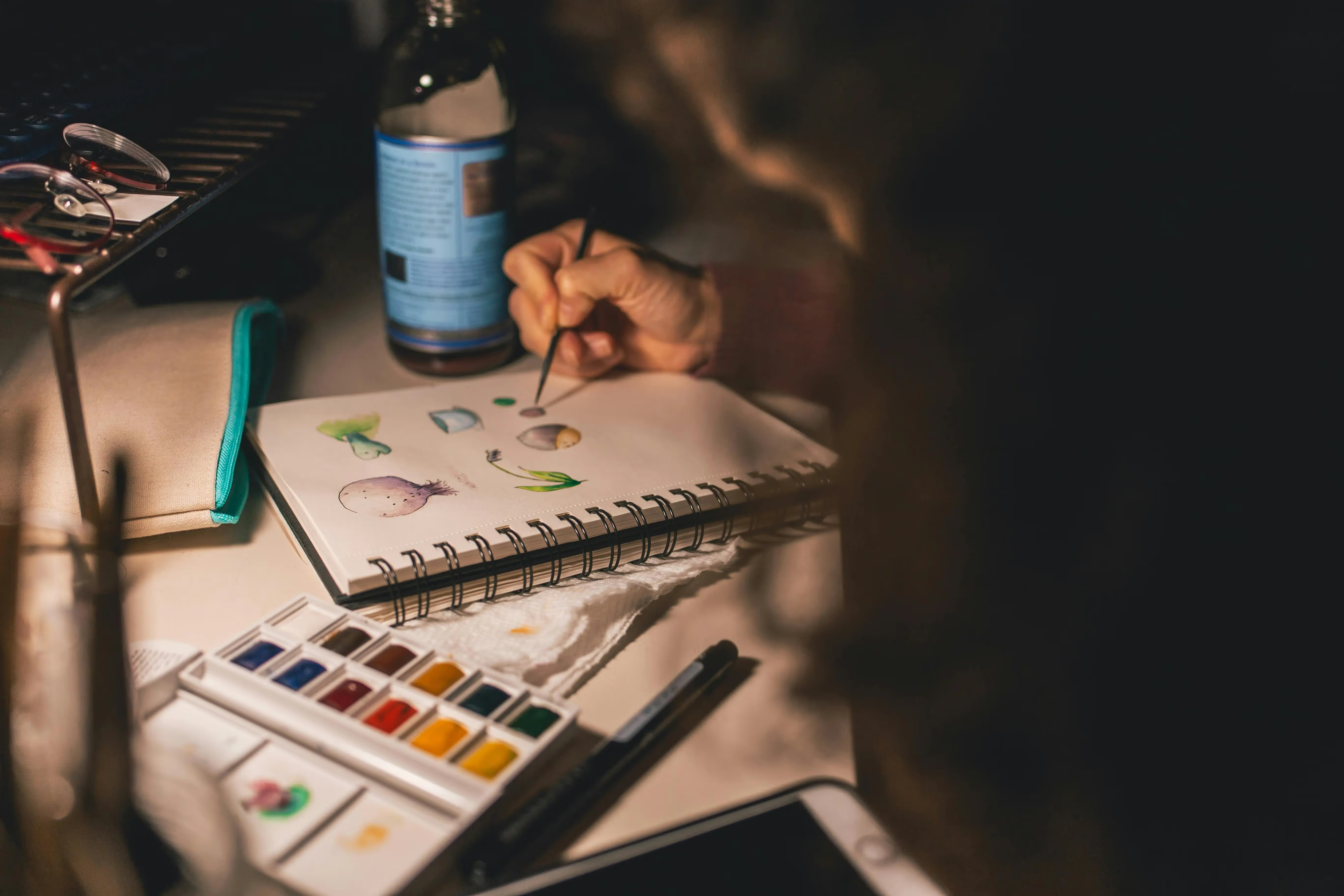The holiday season, often portrayed as a time of joy and togetherness, can paradoxically be a period of profound difficulty for many. Contrary to the festive imagery and societal expectations, this time can amplify feelings of loneliness, stress, and sadness.
This article aims to help you identify the difficult emotions you're experiencing, explore the multifaceted reasons behind increased depression during the holidays, and offer practical coping strategies.

Why People Feel More Depressed During the Holidays
Loneliness
Loneliness is particularly poignant during the holidays. According to onesurvey from AARP, up to 31% of Americans report feeling loneliness during the Holiday season. The contrast between the idealized images of togetherness and the reality of being alone can be stark. Whether it's due to distance from family, loss of loved ones, or personal circumstances, the feeling of isolation can be magnified when it seems like the rest of the world is celebrating.
Financial Stress
The holidays often bring financial stress. The pressure to purchase gifts, travel, and prepare festive meals can lead to a significant financial burden. This stress is compounded for those already managing tight budgets, turning what should be a season of joy into a time of worry.
Religious Trauma
For some, the holidays can revive religious trauma. This can stem from painful memories or negative associations with religious practices and beliefs. The pervasive nature of religious celebrations during this time can unintentionally reopen old wounds.
Reduced Daylight and Seasonal Affective Disorder
The shorter days of winter contribute to Seasonal Affective Disorder or SAD. This is a type of depression that comes about due to the reduced daylight hours, which can significantly impact one's mood, exacerbating feelings of sadness and lethargy.
Grief Over Lost Loved Ones
The holidays can also be a stark reminder of grief. The absence of a loved one is felt deeply during times traditionally spent together. This can turn what is meant to be a celebratory time into a period of sorrow and longing.
Family Stress and Social Media Comparisons
The holiday season can intensify family stress. Family gatherings, while enjoyable for some, can be a source of tension and conflict for others. Moreover, social media often portrays an idealized version of holiday celebrations, leading to unhealthy comparisons and feelings of inadequacy.
Understanding Depression
Before delving into coping strategies, it's crucial to understand what depression is and how it manifests, especially during the holidays.
What is Depression?
Depression is a common mood disorder that goes beyond just feeling sad or having a bad day; it's a persistent problem that affects everyday emotional states. People experiencing depression often contend with a range of symptoms including:
- Persistent sadness or low mood.
- Lack of energy and fatigue.
- Insomnia or oversleeping leading to difficult sleep patterns.
- Changes in appetite, leading to weight loss or gain.
- Loss of interest in activities once enjoyed.
- Feelings of worthlessness or excessive guilt.
- Difficulty concentrating and making decisions.
- Thoughts of death or suicide.
Holiday-Specific Triggers
During the holidays, these symptoms can be triggered or exacerbated by the unique stressors of the season. It's important to recognize that feeling down during this time doesn't automatically mean you have clinical depression. However, if the symptoms are intense and persistent, it could be a sign of a deeper issue.
For those already coping with a diagnosed mental illness, it's good to be aware the Holidays can often worse your existing state. One study conducted by the National Alliance on Mental Health (NAMI) reports that approximately 24% of people with a diagnosed mental illness find that the holidays make their condition "a lot" worse, and 40% find it becomes "somewhat" worse.
Clinical Depression vs. Temporary Holiday Blues
It's vital to differentiate between clinical depression and the temporary holiday blues. The holiday blues are short-term feelings of sadness or stress that resolve after the holiday season. Clinical depression, on the other hand, is more severe and long-lasting. If you find your symptoms are significantly impairing your daily life and persist beyond the holiday season, it's essential to seek professional help.
Coping Strategies and Self-Care
The holiday season doesn't have to be a time of despair, even if you're facing mental health challenges. Here are some practical coping strategies and self-care tips to help you through:
Set Realistic Expectations
- Accept Imperfection: The holiday season need not mirror past celebrations or strive for perfection. As families evolve, so too can traditions and rituals. Embrace a few cherished ones while welcoming the opportunity to establish new customs.
- Set Financial Limits: Decide how much money you're able to spend on gifts and food before you go shopping and stick to your budget to avoid financial stress.
Make Time for Holiday Joy
- Seek Out Positive Activities: Even if you're not feeling up to it, try to participate in activities that have made you happy in the past. Sometimes, engagement can lift your mood.
- Volunteer: Helping others can provide a new perspective and bring joy to your holiday season.
Stick to Regular Routines
- Maintain Your Routine: Try to keep your regular schedule for sleeping, eating, exercising, and other daily activities. Disrupting these routines can affect your mood and stress levels.
Reach Out
- Connect with Others: If you feel lonely or isolated, seek out community, religious or other social events. They can offer support and companionship.
- Talk About Your Feelings: If you're feeling overwhelmed, talk to a friend or family member about what you're going through.
Take Care of Your Physical Health
- Nutrition: Eat a well-balanced diet and don't overindulge in holiday treats.
- Exercise: Regular physical activity can help manage stress and anxiety.
- Sleep: Make sure you're getting enough sleep. Sleep deprivation can significantly affect mood and energy levels.
Give Yourself Time to Recharge
- Alone Time: Don’t be afraid to take breaks from social interactions to recharge. A quick walk or a few moments of solitude can be refreshing.
- Practice Mindfulness: Engage in relaxation techniques like deep bronzing, meditation, or yoga.
Seek Professional Help If Needed
- Therapy: If you find your mood doesn't lift or is increasingly interfering with your ability to function, don't hesitate to seek professional help. A therapist can provide strategies tailored to your specific situation.
The holiday season, while often seen as a time of joy and celebration, can also be a period of stress and heightened emotions for those struggling with depression. Understanding the triggers and symptoms of depression, distinguishing between temporary holiday blues and clinical depression, and implementing effective coping strategies are vital steps towards managing your mental health during this time.
Remember, the key to navigating the holiday season with depression is to acknowledge your feelings, take proactive steps to manage stress, and find support when needed. With the right strategies and support, it's possible to find moments of peace and joy during this challenging time.
Common Questions About Holiday Depression
How do I know if I should seek therapy or medication for my depression?
If your symptoms are severe, persistent, and interfere with your daily life, it's important to seek professional help. Therapy can provide support, coping strategies, and insight into your condition, while medication may be necessary for more severe cases. Speaking with a therapist or psychologist is the best way to determine the right course of action for you.
Can lifestyle changes really help with depression?
Absolutely. Lifestyle changes can contribute significantly in managing depression. Regular exercise, a healthy diet, a healthy amount of sleep, and maintaining social connections can all contribute to improved mental health. However, they are often most effective when combined with professional treatment.
Is it normal to feel more depressed during the holidays?
Yes, it's not uncommon to feel more depressed during the holidays due to various factors like stress, loneliness, and seasonal affective disorder. Recognizing these feelings and implementing coping strategies can help manage them.
What should I do if I feel overwhelmed during the holidays?
If you feel overwhelmed, take a step back and focus on self-care. Simplify your plans, set realistic expectations, and don't hesitate to say no to activities that feel too stressful. Reach out to friends, family, or a professional if you need support.





